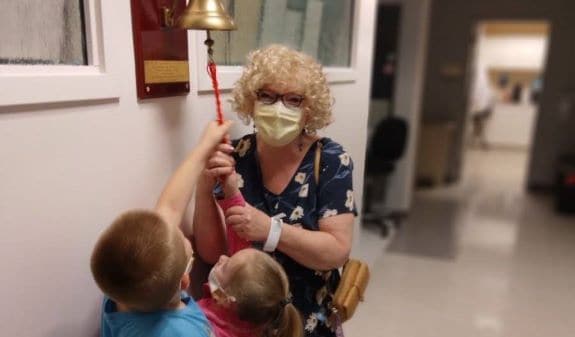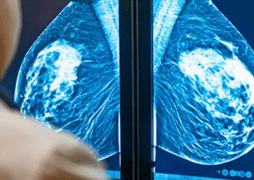For a medication that’s been around in one form or another for over 2,000 years, aspirin still has a surprising way of grabbing headlines. Once used mainly for pain relief, fever and heart attacks, aspirin has now broken into the realm of cancer prevention. A string of scientific papers have recently been published focusing on aspirin’s potential to lower the risk of cancer and improve survival after cancer.
So far, the best data on these benefits come from colon cancer studies, but evidence is growing for other cancers, including breast cancer.
Does regular aspirin use lower the risk of breast cancer?
Right now, we don’t know. The results from individual studies have been mixed. Some studies show a benefit with aspirin use, others show no link and some even show aspirin increases breast cancer risk.1 However, a meta-analysis that combined the results of 33 studies found that regular aspirin use may slightly lower the risk of breast cancer.1
Probably the most important study to date looking at the issue was a randomized controlled trial (the gold standard of studies) with nearly 40,000 participants. This study found no link between aspirin use and breast cancer risk, even after 10 years of use.2 The researchers followed the study participants for eight more years after the end of the active trial and still found no link.2 The dose of aspirin used in this study however, may have been too low to have benefit.
The exact link between aspirin and breast cancer risk remains an open question. A large number of factors, including the dose of aspirin, need to be taken into account when looking at aspirin use and breast cancer risk. This can make it hard for one randomized trial to capture all the important aspects of the relationship. So, the one conclusion that can be drawn from all the evidence to date is that we need more studies.
Does regular aspirin use help women live longer after a breast cancer diagnosis?
Again, we don’t know for sure. Overall, the evidence is a bit stronger for aspirin improving breast cancer survival than it is for lowering the risk of getting breast cancer in the first place. Though there’s yet to be a definitive randomized controlled trial, a number of well-designed studies have found that regular aspirin use (even just once a week) may lower the risk of dying from breast cancer.3 According to Dr. Michelle Holmes, Associate Professor of Epidemiology at Harvard School of Public Health, “We really need a trial of aspirin in women with breast cancer. Breast cancer is the leading cause of cancer death in women globally and those in low-income countries aren’t getting much treatment. A year’s supply of aspirin costs $6, and if a trial showed that it works to improve survival it could be available to women with breast cancer in every country in the world.”
A randomized trial in the United Kingdom has just started looking at this issue. Results are expected in about a decade.
How might regular aspirin use prevent breast cancer and extend survival?
Even though there is no confirmed link between aspirin and a lower risk of developing or dying from breast cancer, there are a number of possible ways that aspirin could help. For example, aspirin may cut down estrogen production, which is a risk factor for many breast cancers.4 And, it may also reduce the levels of another hormone in the body called prostaglandin, which plays a key role in inflammation and possibly cancer growth.4
What are some potential harms of regular aspirin use?
Despite its long history, aspirin use is not risk-free. The most common side effect is irritation of the stomach and intestines, which can lead to the development of ulcers. There is also a rare, but serious, risk of developing bleeding in the brain. Sensitivity to aspirin can vary from person to person, and the chances of side effects tend to go up the older someone is and the more aspirin he/she takes.
What are the current recommendations for aspirin and disease prevention?
The U.S. Preventive Services Task Force recommends that women ages 55 to 79 take a daily aspirin to lower the risk of heart attack if the benefits are thought to outweigh the potential harms.5 The Task Force notes in their recommendation that a low-dose aspirin (75mg) seems as effective as higher doses at lowering the risk of heart attack and likely cuts down on the risk of side effects.5
Should I take a daily aspirin?
For some women, taking a daily aspirin to improve their heart health makes sense. If you are thinking about taking an aspirin regularly, talk with a doctor beforehand to make sure it’s right for you.
Currently, aspirin should not be taken to reduce the risk of breast cancer or any other type of cancer.
Summary
Though regular aspirin use has been shown to lower the risk of heart attack, it’s currently not clear if it has any benefits for breast cancer. Some data show that it may improve survival and lower the risk of developing breast cancer, but more definitive studies are needed. For women ages 55 to 79, a daily aspirin may have important heart health benefits, but it’s important to talk with a doctor before taking an aspirin regularly.
What is Komen doing?
Komen has invested over $3 million in research on aspirin (and other anti-inflammatory drugs) and breast cancer. This research includes:
- How aspirin and other anti-inflammatory drugs affect breast cancer cell growth
- Whether regular aspirin use improves long-term survival after breast cancer
References
- Luo T, Yan HM, He P, Luo Y, Yang YF, Zheng H. Aspirin use and breast cancer risk: a meta-analysis. Breast Cancer Res Treat. 131:581-587, 2012.
- Cook NR, Lee IM, Zhang SM, Moorthy MV, Buring JE. Alternate-day, low-dose aspirin and cancer risk: long-term observational follow-up of a randomized trial. Ann Intern Med. 159:77-85, 2013.
- Holmes MD, Chen WY, Li L, Hertzmark E, Spiegelman D, Hankinson SE. Aspirin intake and survival after breast cancer. J Clin Oncol. 28:1467-1472, 2010.
- Pasche B, Wang M, Pennison M, Jimenez H. Prevention and treatment of cancer with aspirin: where do we stand? Semin Oncol. 41(3):397-401, 2014.
- U.S. Preventive Services Task Force. Aspirin for the prevention of cardiovascular disease: U.S. Preventive Services Task Force recommendation statement. Ann Intern Med. 150(6):396-404, 2009.



